Un horizonte de libertad: recurrir a Foucault para para pensar la educación y el aprendizaje de manera diferente
Resumen
Palabras clave
Texto completo:
PDFReferencias
Allan, J. (1999). Actively Seeking Inclusion: Pupils with Special Needs in Mainstream Schools. Falmer Press.
Ball, S.J. (2018) The tragedy of state education in England: Reluctance, compromise and muddle – a system in disarray. Journal of the British Academy (6), 207–238.
Ball, S. J. y Olmedo. A. (2013). Care of the self, resistance and subjectivity under neoliberal governmentalities. Critical Studies in Education 54(1), 85–96.
Batters, S. (2011). Care of the self and the will to freedom: Michel Foucault, critique and ethics. Available at: https://digitalcommons.uri.edu/cgi/viewcontent.cgi?referer¼https://www.google.com/&httpsredir¼1&article¼1241&context¼srhonorsprog
Beech, J. y Meo, A. I. (2016). Explorando el uso de las herramientas teóricas de Stephen J. Ball en el estudio de las políticas educativas en América Latina. Archivos Analíticos de Políticas Educativas, 24(23), 1-15
Bemauer, J. W. y Rasmussen, D. (1994). The Final Foucault. MIT Press.
Biesta, G. J. J. (2013). The Beautiful Risk of Education. Paradigm.
Biesta, G. J. J. (2017). Don’t be fooled by ignorant schoolmasters: On the role of the teacher in emancipatory education. Policy Futures in Education 15(1), 52–73.
Butin, D. (2001). If this is resistance I would hate to see domination: Retrieving Foucault’s notion of resistance within educational research. Educational Studies 32(2), 157–176.
Butin, D. (2006). Putting Foucault to work in educational research. Journal of Philosophy of Education 40(3), 371–380.
Carroll, D. (1982). Disruptive discourse and critical power: The conditions of archaeology and genealogy. Humanities in Society 5(3–4), 175-200
Chokr, N. N. (2009). Unlearning: Or How Not to Be Governed? Societas.
Code, L. (2007). The power of ignorance. En: Sullivan, S. y Tuana, N. (eds). Race and Epistemologies of Ignorance (pp. 213-229). State University of New York Press.
Davidson, A. (2001). In praise of counter-conduct. History of the Human Sciences 24(4), 25–41.
Deacon, R. (2006). Michel Foucault on education: a preliminary theoretical overview. SouthAfrican Journal of Education 26(2), 177–187.
Deleuze, G. y Guattari, F. (1991) What is Philosophy. Columbia University Press.
Dishon, G. y Goodman, J. F. (2017) No-excuses for character: A critique of character education in no excuses charter schools. Theory and Research in Education 15(2), 182–201.
Falzon, C. (1998). Foucault and Social Dialogue: beyond fragmentation. Routledge.
Felman, S. (1992) Education and crisis, or the vicissitudes of teaching. En: Felman, S. y Laub, D. (eds.). Testimony: Crises of Witnessing in Literature, Psychoanalysis, and History (pp. 1–56.). Routledge.
Foucault, M. (s/f) Self-writing. Disponible en: itsy.co.uk/archive/sisn/Pos/green/Foucault.doc (consultado 17 May 2012).
Foucault, M. (1971). Orders of discourse. Social Science Information 10(2), 7–30.
Foucault, M. (1972). The Archeology of Knowledge. Vintage.
Foucault, M. (1977). Language, Counter-Memory, Practice: Selected Essays and Interviews.Cornell University Press.
Foucault, M. (1979). Discipline and Punish. Penguin.
Foucault, M. (1980). Governmentality. En: Rabinow, P. y Rose, N. (eds.) The Essential Foucault: The Essential Works of Michel Foucault 1954–1984 (pp.229–252). Free Press.
Foucault, M. (1983). On the genealogy of ethics: An overview of work in progress. En: Dreyfus, H. y Rabinow, P. (eds.) Michel Foucault: Beyond Structuralism and Hermeneutics (pp. 841-869). University of Chicago Press.
Foucault, M. (1984). Of other spaces: Utopias and heterotopias. Disponible en: http://web.mit.edu/ allanmc/www/foucault1.pdf
Foucault, M. (1988a). The ethic of the care for the self as a practice of freedom (interview). En: Bernauer, J. y Rasmussen, D. (eds.) The Final Foucault (1–20). MIT Press.
Foucault, M. (1988b) The masked philosopher. En: Kritzman, L. D. (ed.) Politics, Philosophy, Culture: Interviews and Other Writings 1977–1984 (pp. 228-237). Routledge.
Foucault, M. (1990) The History of Sexuality, Volume 3: The Care of the Self. Penguin.
Foucault, M. (1992) The History of Sexuality, Volume 2: The Use of Pleasure. Penguin.
Foucault, M. (1997) What is critique? En: Lotringer, S. y Hochroth, L. (eds.) The Politics of Truth (pp. 41-83). Semiotext(e).
Foucault, M. (1997). Self Writing in Ethics: Subjectivity and Truth. The New Press.
Foucault, M. (2000). The Essential Works of Michel Foucault, 1954–1984, Volume 3: Power. Free Press.
Foucault, M. (2006). The History of Madness. Routledge.
Foucault, M. (2010). The Government of the Self and others: Lectures at the College de France 1982-1983. Palgrave.
Foucault, M. (2011). The Courage of Truth: Lectures at the College de France 1983–84. Palgrave Macmillan.
Foucault, M. (2016) About the Beginning of the Hermeneutics of the Self: Lectures at Dartmouth College, 1980. University of Chicago Press.
Guess, R. (2008). Philosophy and Real Politics. Princeton University Press.
Infinito, J. (2003a) Ethical self-formation: A look at the later Foucault. Educational Theory 53(2), 155–171.
Infinito, J. (2003b) Jane Elliot meets Foucault: The formation of ethical identities in the classroom. Journal of Moral Education 32(1), 67–76.
Kohlberg, L (1981). Essays on Moral Development, Volume 1: The Philosophy of Moral Development. Harper and Row.
Lazzarato, M. (2009). Neoliberalism in action: Inequality, insecurity and the reconstitution of the social. Theory, Culture and Society 26(6), 109–133.
Leask, I. (2011). Beyond subjection: Notes on the later Foucault and education. Educational Philosophy and Theory 44(1), 57–73.
McNay, L. (2013). Foucault and Feminism: Power, Gender and the Self. Wiley.
Mahmood, S. (2011). Politics of Piety: The Islamic Revival and the Feminist Subject. Princeton University Press.
Mahon, M. (1992). Foucault’s Nietzschean Genealogy: Truth, Power and the Subject. State University of New York Press.
Martin, L. H., Gutman, H. y Hutton, P. H. (eds.) (1988) Technologies of the Self: A Seminar with Michel Foucault. Tavistock.
Meade, R. R. (2014). Foucault’s concept of counter-conduct and the politics of anti-austerity protest in Ireland. Concept 5(3), 1–13.
Medina, J. (2011). Toward a Foucauldian epistemology of resistance: Counter-memory, epistemic friction and guerrilla pluralism. Foucault Studies 12(1), 9–35.
Milchman, A. y Rosenberg, A. (2011) Michel Foucault: An ethical politics of care of the self and others. En: Zuckert, C. H. (ed.) Political Philosophy in the Twentieth Century: Authors and Arguments (pp.228-237). Cambridge University Press.
Oksala, J. (2005). Foucault on Freedom. Cambridge University Press.
Olssen, M. (2007). Invoking Democracy: Foucault’s conception (with insights from Hobbes). En Peters, M. A. y Besley, A. C. (Eds.) Why Foucault? new directions in educational research. Peter Lang.
Olssen, M. (2009). Toward a Global Thin Community: Nietzsche, Foucault and the Cosmopolitan Commitment. Paradigm.
Peters, M. (2003). Truth-telling as an educational practice of the self: Foucault, parrhesia and the ethics of subjectivity. Oxford Review of Education 29(2), 207–224.
Peters, W. (Productor) (1985, Marzo 26). A class divided. (Documental) (Temporada 1985, Episodio 9) Frontline Documentaries. PBS. https://www.pbs.org/wgbh/frontline/film/classdivided/
Pignatelli, F. (1993). What can I do? Foucault on freedom and the question of teacher agency. Educational Theory 43(4), 411–432.
Pignatelli, F. (2002). Mapping the Terrain of Foucauldian Ethics: A Response to the Surveillance of Schooling. Studies in Philosophy and Education 21(1): 157–180.
Rabinow, P. (ed.) (1987). The Foucault Reader. Penguin. Scheurich, J. y Bell McKenzie, K. (2005). Foucault’s methodologies: Archaeology and
genealogy. En: Denzin, N. K. y Lincoln, Y. S. (eds.) The SAGE Handbook of Qualitative Research (pp. 864-889). SAGE.
Sicilia-Camacho, A. y Fernandez-Balboa, J. M. (2009) Reflecting on the moral bases of critical pedagogy in PETE: toward a Foucaultian perspective on ethics and the care of the self. Sport, Education and Society 14(4), 443–463.
SocioPhilosophy (5 de Agosto de 2011) Foucault: Truth and Subjectivity, lecture 1, part 1 of 5.YouTube. https://www.youtube.com/watch?v=V0URrVbpjW0
Tamboukou, M. (2006). Educational heterotopias and the self. Pedagogy, Culture and Society 12(3), 399–414.
Tavani, E. (2013). Hannah Arendt: Aesthetics and politics of appearance. Proceedings of the European Society for Aesthetics 5, 466–475.
Wain, K. (2007). Foucault: the ethics of self-creation and the future of education. En Peters Mand Belsey, T. (Eds.). Why Foucault? New directions in educational research. Peter Lang.
Wenham, M. (2013). The Tragic View of the World. Cambridge University Press.
Youdell, D. (2011). School Trouble: Identity, Power and Politics in Education. Routledge.
Zalloua, Z. (2004). Foucault as educator: The question of technology and learning how to read differently. Symploke 12(1–2), 232–247.
Zembylas, M. (2015). ‘Pedagogy of discomfort’ and its ethical implications: The tensions of ethical violence in social justice education. Ethics and Education 10(2): 163–174

Este obra está bajo una licencia de Creative Commons Reconocimiento-NoComercial-CompartirIgual 4.0 Internacional.
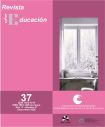 |
ISSN 1853-1318 (impresa) - ISSN 1853-1326 (en línea)
|
| Indizada en: | |
 | CCPP Catálogo Colectivo de Publicaciones Periódicas http://ccpp.caicyt.gov.ar/cgi-bin/koha/opac-detail.pl?biblionumber=149451 |
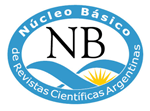 | Núcleo Básico de Revistas Científicas Argentinas, Caicyt http://www.caicyt-conicet.gov.ar/sitio/revista-de-educacion/ |
 | Google académico (en proceso de actualización) |
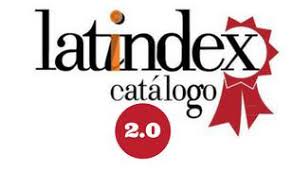 | Latindex https://www.latindex.org/latindex/ficha/14316 |
 | Redib http://redib.org/Record/oai_revista1003-revista-de-educaci%C3%B3n |
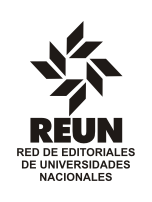 | REUN https://www.reun.com.ar/ |
 | DOAJ Link/ |
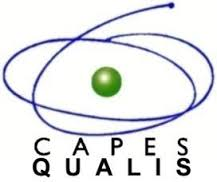 | Capes Qualis Link/ |
 | Journals for Free Link/ |
 | Latinoamericana (Asociación de Revistas Académicas de Humanidades y Ciencias Sociales) Link/ |
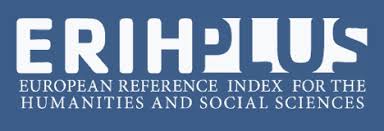 | ERIH PLUS (European Reference Index for the Humanities and Social Sciences) Link/ |
 | ROAD (Directory of Open Acces Scholarly Resources) Link/ |
 | Directory of Research Journals Indexing (DRJI) Link/ |
 | LatinRev Link/ |
| Esta revista utiliza el Identificador Persistente | |
.png) |

